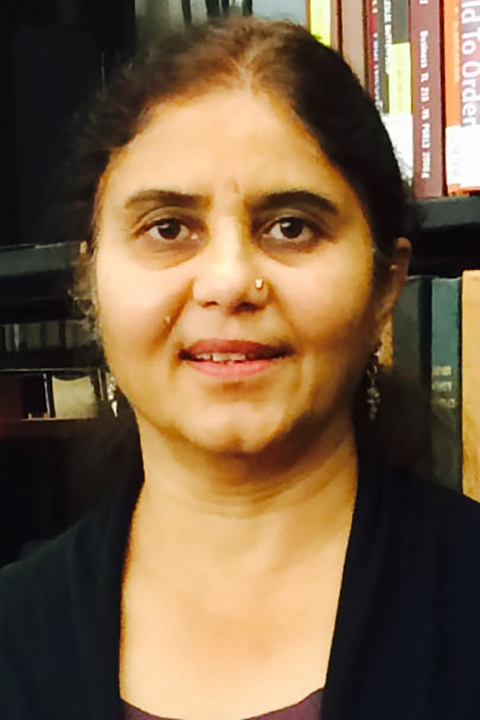International and Public Affairs
This document outlines the Libraries’ general policy on collections for international and public affairs, but it is not intended to be a rigid set of rules; collection suggestions from students and faculty are welcome.
The School of International and Public Affairs (SIPA) was founded after World War II in 1946 as the School of International Affairs, with the original intention to prepare and educate future diplomats. In 1981, the school added public affairs as a main commitment and since then has been committed to educating students to produce and share public policy for a global community.
The collection actively supports the scholarly pursuits of the School of International and Public Affairs (SIPA). Areas of established specialization are diverse and include economics, energy, environment, gender, human rights, international conflict resolution, international security policy, management, social policy, technology, United Nations studies, and urban policy.
a. Undergraduate
Columbia does not offer an undergraduate degree from SIPA. However, the Libraries supports undergraduate students from Columbia and Barnard College in their research regarding areas of specialization supported by the collection.
b. Graduate
There are many distinctive graduate programs in SIPA, including Master of International Affairs, Master of Public Administration (MPA), MPA in Economic Policy Management, MPA in Environmental Science and Policy, MPA in Development Practice, and a PhD in sustainable development.
The culminating capstone project for SIPA degree candidates in the Master of International Affairs, Master of Public Administration, and Master of Public Administration in Environmental Science Policy is supported by the Libraries.
Additionally, there are eleven dual degree programs offered with other Columbia schools, namely the Mailman School of Public Health, Columbia Law School, Columbia Business School, Columbia School of Journalism, Columbia School of Social Work, Graduate School of Arts and Sciences, and Graduate School of Architecture, Planning and Preservation.
c. Institutes, Interdisciplinary Programs, Etc.
SIPA is partnered with the Global Public Policy Network (GPPN) and the following institutions to provide dual degree and student exchange programs: Sciences Po Paris, London School of Economics and Political Science, Lee Kuan Yew School of Public Policy at the National University of Singapore, FGV-EAESP in São Paulo, Graduate School of Public Policy (GraSPP) at the University of Tokyo, and the Hertie School of Governance in Berlin.
There are five institutes that robustly support the research of students and faculty: Center for Development Economics and Policy (CDEP), Center on Global Economic Governance (CGEG), Center on Global Energy Policy (CGEP), Deepak and Neera Raj Center on Indian Economic Policies, and Saltzman Institute of War and Peace Studies (SIWPS).
d. Course Reserves
Selection for course reserves is up to individual faculty members. The Librarian will do whatever is possible to secure specific materials absent from the collection.
a. Print
Print materials collected extensively include monographs, periodicals (including annuals), scholarly series, and reference tools. Print materials are mainly held in Lehman Social Sciences Library; lesser-used items are generally stored in the Libraries’ shared off-site storage facility (ReCAP). Foreign-language material is primarily selected for ReCAP.
b. Digital Collections
Columbia University Libraries offers a robust variety of electronic resources. The international and public affairs collection strives to offer the full array of available databases of interest to the field. The Libraries maintains a numeric and spatial data catalog that contains links to resources that are of interest to scholars in these areas.
E-books are collected extensively. These may be purchased outright or may be part of a subscription services as appropriate, based on availability. Electronic items with reduced barriers to access are preferred, such as DRM-free e-books or multi-user licenses.
Columbia is actively involved in the Ivy Plus Libraries Confederation initiative to preserve endangered websites related to political science, elections, and civic life. The Libraries’ Web Resources Collection Program archives selected websites in thematic areas corresponding to existing collection strengths, including the Human Rights Web Archive.
c. Media
Audiovisual materials and electronic tools are collected selectively, but may be present as part of broader electronic collections or purchased upon specific request.
d. Languages Collected
We collect English language materials extensively, Western European languages selectively, and non-Western languages are collected rarely.
e. Chronological Focus
We collect materials focusing on current research topics and 20th-century topics selectively.
f. Geographical Focus
We collect United States imprints extensively and materials published in Great Britain, Western Europe, Canada, and Latin America selectively. Our Global Studies collections provide a larger breadth of international materials that complement these collections.
g. Imprint Dates Collected
We collect current publications and 20th-century materials extensively and 19th-century materials very selectively.
Not applicable.
a. Consortia and Collaborative Collecting with Other Institutions
The range of print materials focusing on the fields of International and Public Affairs are greatly enhanced by Columbia’s participation in Borrow Direct, OCLC’s SHARES network of international academic libraries, and the Manhattan Research Library Initiative (MaRLI), a partnership with New York University and The New York Public Library. MaRLI also enables Columbia to expand its electronic access to electronic journals and books through cooperative subscription and purchase agreements.
b. Location Decisions and Selection for ReCAP
Lesser-used physical items are primarily sent to ReCAP, unless purchased specifically for course reserves or by patron request. Duplication of titles is limited to works identified by faculty as being central to a specific course. In these cases, no more than a few copies are obtained, one of which should be placed by the faculty member on reserve.
Deduplication only takes place when a title has been identified for relocation to ReCAP and a copy already exists on shelf at that facility. Even in this instance, the Librarian will inspect the copy that could potentially be withdrawn for any unique features or unusual provenance before assenting to deduplication.
c. Deaccessioning
Titles are generally deaccessioned only in cases where the physical copy is disintegrating and no longer serviceable in print/physical format. In these instances, the Librarian will evaluate whether to make a preservation photocopy, to create or acquire a digital surrogate, and/or whether to replace the physical copy with another. Resources on obsolete formats are reviewed by librarians on a case-by-case basis; in instances where the original format has artifactual value, it will be retained even after it has been digitized or otherwise reformatted. Distinctive collections held in the Rare Book & Manuscript Library, the C. V. Starr East Asian Library, Avery Architectural & Fine Arts Library, and the Burke Library at Union Theological Seminary are not deaccessioned.
d. Digitization and Preservation
Materials may be treated for preservation issues as needed.

Yasmin Saira Rizvi
Research Support & Collection Development Librarian
- Science, Engineering, & Social Sciences Libraries

Jeremiah Trinidad-Christensen
Head, Research Data Services
- Digital Scholarship